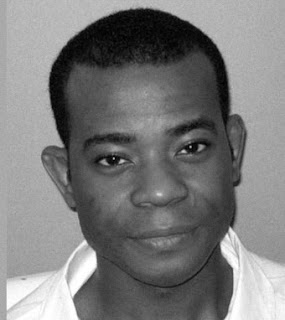Who was Nathaniel Woods
Nathaniel Woods, 44, was killed by lethal injection on March 5 at William C. Holman prison in Atmore, Alabama.
The state of Alabama and everyone involved in his death knew he didn’t kill Carlos Owen, Harley A. Chisholm III, and Charles R. Bennett, three Birmingham, Ala., police officers. They conceded that point time and time again. Even the jury hearing the case did not come to a unanimous decision on whether he should receive the death penalty.
They killed him anyway.
“Under Alabama law, someone who helps kill a police officer is just as guilty as the person who directly commits the crime,” said Alabama Gov. Kay Ivey. “Since 1983, Alabama has executed two individuals for being an accomplice to capital murder.”
No Nate Woods wasn’t innocent. A jury convicted him of murder. There is no objective evidence that he planned the crime. In fact, there is only one thing that every person, even the people who executed him, can agree on:
Nate Woods didn’t kill anyone.
According to court records, locals and a mountain of evidence, Woods was a drug dealer who was in cahoots with crooked cops. Or, as NBC reports more professionally: “Two of the officers who were killed were later accused by another drug dealer at Woods’ home of being involved in a corrupt scheme that protected dealers in exchange for money…”
Until Woods allegedly stopped paying them.
On June 17, 2004, police officers obtained a misdemeanor warrant for Woods’ arrest. Four police officers went to Woods’ apartment to take him into custody. When they arrived, they found Kerry Spencer, who was also be convicted of capital murder.
After the officers arrived, and several had entered the home, Spencer opened fire. Owen, Chisholm, and Bennett were dead when help arrived, while Collins was suffering from gunshot wounds. “Each (of the three officers) had died from multiple gunshot wounds,” according to the state’s motion asking for an execution date.
“Responding officers found an SKS assault rifle in the grass outside, a handgun in the bathroom, and two long guns in a bedroom. The officers’ bulletproof vests had been pierced, typical of damage sustained by high-powered rifle fire,” the motion states.
“When Woods was located, he was sitting with other men on the porch of (a neighbor’s) house nearby, apparently ‘very relaxed.’ He gave his full name and was found to have two .22 caliber bullets in his pocket. Kerry Spencer was eventually pulled out of (the neighbor’s) attic,” the motion states. A “doorman” at the drug house testified Woods and Spencer sold mostly crack cocaine to 100-150 customers per day, according to court records.
Spencer testified that Woods had nothing to do with the killing. Michael Collins, the only surviving officer who was at the scene, said he “knew it wasn’t Nathaniel” that fired the weapon, testifying that Woods yelled: “I give up. I give up. Just don’t spray me with that mace,”
But under Alabama’s felony murder rule if someone kills a person during the commission of a crime, their accomplice is just as guilty as the person who pulled the trigger. Woods claims his attorneys never informed him that he could be convicted of murder even if he proved that he didn’t kill anyone.
Woods assumed he was in the clear when prosecutors didn’t even argue that he shot the officers, only offering evidence that Woods hated the police. His appeal lawyers even argued that there was no “plot” to kill the officers—that Spencer acted impulsively—Spencer even testified as such. Alabama is also the only place in America where a defendant can receive a death penalty without a unanimous verdict by a jury, another fact Woods says he wasn’t told.
Execution of Nathaniel Woods
Woods was convicted in December 2005 of capital murder for the June 17, 2004 shooting deaths of Birmingham police officers Carlos Owen, Harley A. Chisholm III, and Charles R. Bennett.
Mr. Woods was poor, could not afford counsel, and was appointed an attorney who abandoned him in the middle of the appeal of his conviction and death sentence. His case was never adequately reviewed by either state or federal courts. Mr. Woods was not the trigger-person in the case—he was only convicted of being an accomplice—so there were serious questions about his culpability. The jury could not reach a unanimous verdict, yet Mr. Woods was sentenced to death, raising additional concerns about the constitutionality of the death penalty in this case.
The undisputed evidence at Mr. Woods’s capital trial showed that Mr. Woods was present at the apartment when police arrived, but he was not the triggerman—Kerry Spencer was responsible for the shots that killed the three officers and injured a fourth. Despite the fact that Mr. Woods was less culpable than Kerry Spencer, he was nevertheless convicted of the same crime: capital murder.
His lawyer did not adequately investigate and presented mitigating evidence, Mr. Woods’s jury still could not reach a unanimous death penalty verdict. Their 10-2 verdict raised important questions about the propriety of Mr. Woods’s death sentence and whether his execution would be appropriate. The U.S. Supreme Court is currently considering a case, Ramos v. Louisiana, that questions whether non-unanimous verdicts in criminal cases are unconstitutional.
Mr. Woods was denied his constitutional rights when his appellate lawyer appointed by the State abandoned him in the middle of the case and failed to file a brief on his behalf, preventing the Alabama Supreme Court from reviewing his case. At the time, Mr. Woods was on death row, had no access to his case docket, and did not learn that his appointed lawyer had abandoned him until months after the deadline to file had passed. When his new counsel asked the Alabama Supreme Court—and, later, the U.S. Supreme Court—to provide Mr. Woods an opportunity to file a brief with a competent lawyer, both courts refused. As a result, the serious questions about his culpability and the propriety of his sentence was never adequately reviewed in either state or federal court.
In addition to the concerns about his culpability, the appropriateness of his sentence, and the lack of adequate appellate review in the case due to the abandonment by appellate counsel, there was serious questions about the date of the scheduled execution. Mr. Woods had alleged that he was being targeted for execution because he did not participate in the process of selecting his execution method. The State purported to offer him two different methods—lethal injection and nitrogen hypoxia—but unfairly neglected to tell Mr. Woods that if he did not participate in and affirmatively pick the “option” of nitrogen hypoxia, he would be executed before inmates who did. Mr. Woods was challenging this process and had alleged that the arbitrary method of selecting prisoners to be executed is unconstitutional.
Woods’ family begged Gov. Ivey to commute his sentence to life in prison. An advocate delivered a letter to Ivey’s office on Thursday, hours before he was scheduled to die, calling the officers’ deaths an “unimaginable, senseless tragedy” while noting that there were “ so many flaws and questions with his trial that we cannot move forward with executing him.” The U.S. Supreme Court issued a temporary stay on Thursday evening while Woods’ attorneys filed another appeal arguing that he had ineffective counsel.
Alabama Attorney General Steve Marshall denied the appeal immediately.
The Alabama Department of Corrections served Woods his last meal—sweet potatoes, spinach, a chicken patty, a chicken leg quarter, cooked apples, fries, two oranges, and an orange-flavored drink. ADOC Public Information Specialist Samantha Rose Woods says Woods ate just one bite of the chicken leg quarter and nothing else.
At 8:37 p.m. the warden read Woods’ death warrant. Three minutes later, Woods began mouthing words and making the sign of his Muslim faith. He jerked his arm against the restraints and stared directly into the viewing room. At 9:01 p.m. on Thursday, March 5, the state of Alabama had officially executed 43-year-old Nathaniel Woods for not murdering anyone.
Everyone's question today is why or how can you sleep at night knowing you Executed a man that DID NOT commit the crime.
Mr. Wood’s was not a hero nor was he heralded in any way. Long before he became a national story and a martyr for the crusade against capital punishment, he was the symbol of a broken criminal justice system and corrupt law enforcement officers.
Reference to case
Equal Justice Initiatives
CNN.com
The daily Beast
USA Today
Montgomery advertisers
Until next time stay safe and God bless...
XOXO
Meo 💋




Comments
Post a Comment